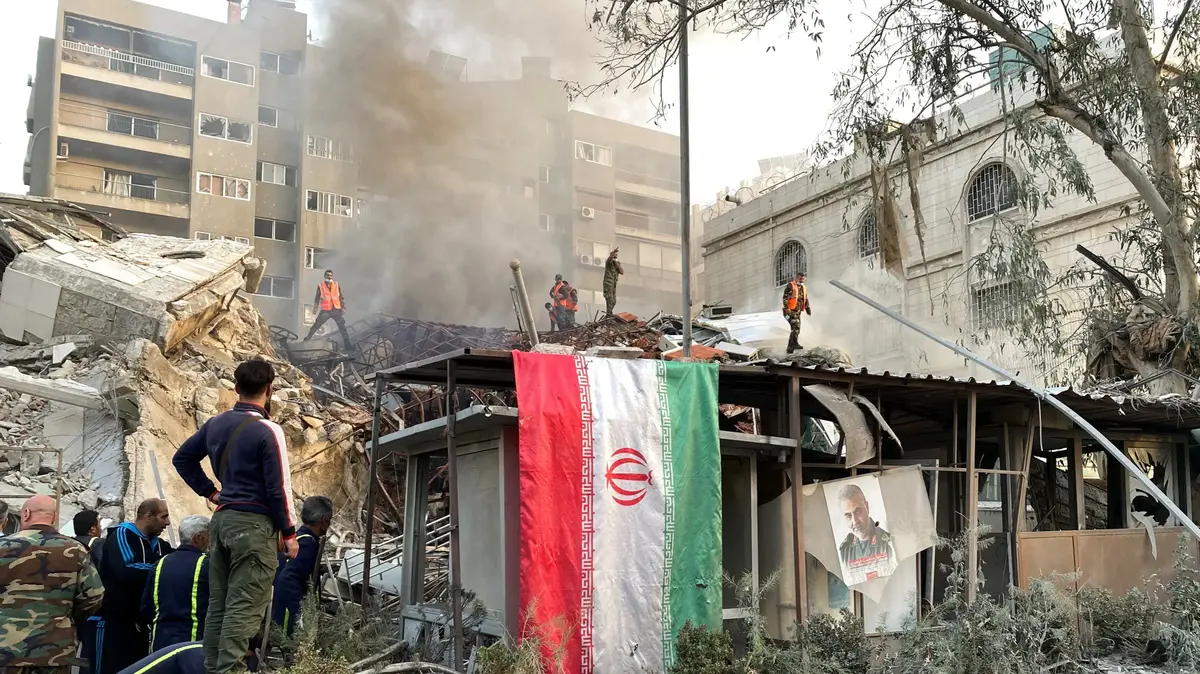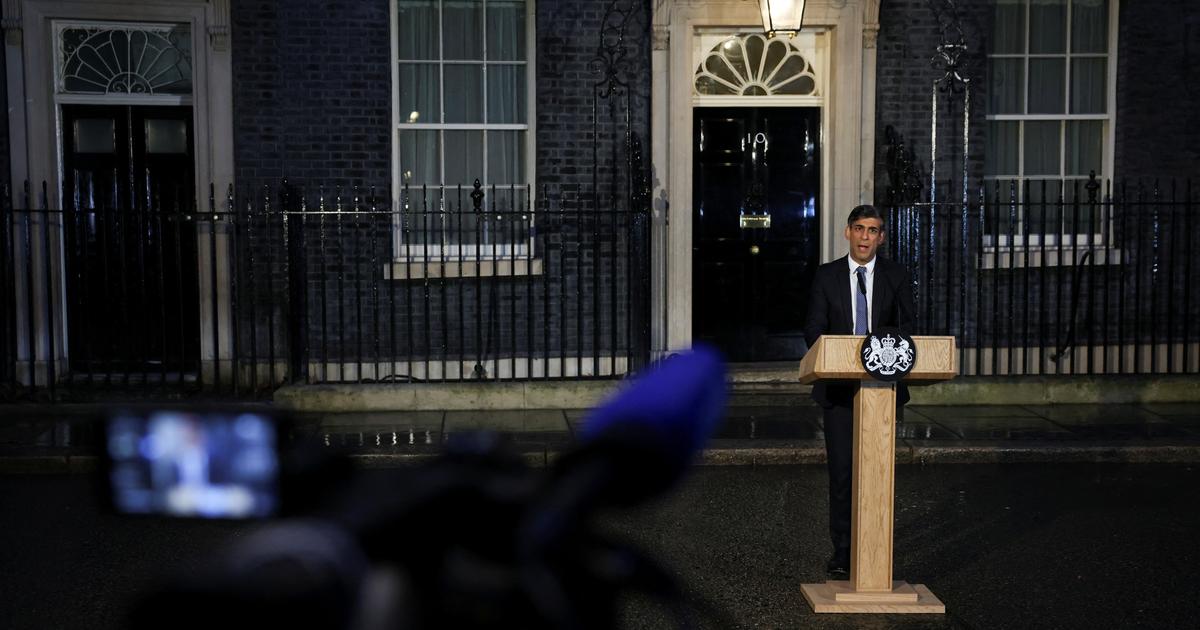Note to readers: EL PAÍS offers the Future Planet section for its daily and global informative contribution on the 2030 Agenda. If you want to support our journalism,
subscribe here.
It's three in the morning and my phone is ringing.
“We have done a cesarean section and the baby is not breathing.
Come to the hospital, Irene! ”.
I jump out of bed, slip into the black abaya, cover my hair with a veil, and get in the car.
In less than 10 minutes I am already in the operating room.
I take over from Tahani, a midwife companion, in the ventilation of the girl and ask the doctor on duty to explain what happened.
As I continue with the resuscitation maneuvers, I listen to his story.
My blood boils with helplessness when I hear his words.
I break down crying.
More information
If you are a woman, does your body belong to you?
A doctor talks about covid-19 in Yemen: "Patients were drowning"
Yemen: spirit of aid does not cease under shelling
Healthy delivery, a persistent challenge in the developing world
But before explaining the reasons that led me to tears, let me tell you what it was that had led me to be in that place at that time.
Months ago I decided to go to Yemen on my first mission with Doctors Without Borders (MSF). I was very excited to participate as a pediatrician in the opening of a maternal and child hospital in a rural area in the west of the country. With a mixture of excitement and fear, I explained it to my mother, although apparently she did not share my same emotion. Days later, he gave me a book called
Brave Women
, a very motherly gesture, one of those who say everything without saying a word. The book in question, written by Txell Feixas, tells stories of women in the Middle East and, coincidentally, the first story tells of a motherhood in Afghanistan. I felt that fate winked at me.
As soon as I got off the plane, I understood that being a woman in Yemen is not easy: forced to cover her body with a wall of black cloth, invisible to society, forced to marry a stranger ... Little by little my smile was fading.
It seemed like a crude reality and difficult to fit in ... Until I met them.
To my colleagues: midwives, nurses, cleaning women, doctors, interpreters.
All of them had faced challenges and stumbles, had run into walls and barriers.
But there they were still, working and helping each other.
Taking care of each other.
And I, who thought I was a feminist, received sisterhood lessons every day.
It seemed like a crude reality and difficult to fit in ... until I met them.
To my colleagues: midwives, nurses, cleaning women, doctors, interpreters ...
Among that dark, silenced crowd was Nada, the neonatal nurse.
Petite, but full of energy, moving up and down taking care of the little ones.
She didn't speak English and I only knew four words of Arabic, but we always found a way to understand each other.
I was dying of laughter when I saw her.
I could only see her eyes, but I often recognized myself in her.
Thirsty for knowledge and always ready to help others;
full of self-confidence and, I'm not going to deny it, a bit bossy.
Al Qanawis Maternal and Child Hospital, northwest Yemen.Karin Ekholm / MSF / Karin Ekholm
But the hospital was not only filled by my colleagues, of course, it was mostly full of mothers. One of the first patients we received upon opening the project was Amjad, a very young girl who was a premature mother. Their daughter was born weighing less than a kilo and a half and had to be hospitalized for several weeks. Being born premature is never easy, doing it in a country at war is an obstacle course. We cared for her until she was able to feed and gain weight without help, at which point we were able to discharge her. That day and not before, he received the name Ebtehaj, which means joy.
A few days later, while I was making the round of visits, I noticed that something was happening.
I turned around and saw her.
She was covered in black and with only her eyes in sight, but I had no doubts: it was Amjad.
He came over to me and gave me a tight, heartfelt hug.
We did not speak the same language, but I understood it perfectly - it may be that this saying everything without saying anything is a mother's thing.
He brought the girl because she had gotten worse.
After discharge, when he still did not weigh two kilos, he had caught a cold and was finding it difficult to breathe.
Despite our efforts, she was getting worse and worse and the next day we had to send her to another hospital.
How did I explain to that family that the girl would not die of tetanus, but of ignorance
Months later, when there was little left to finish my mission, and when the lack of energy was already ravaging me, I had that strange feeling again. I turned around and saw her: Amjad was coming to visit. How could it be otherwise, we merged into a hug to tell each other everything that we could not express in words. He uncovered the blanket that covered his daughter and there was Ebtehaj: beautiful and huge. The emotion of seeing how he had grown overcame me and I burst into tears.
Unfortunately, not all mothers and girls had a beautiful story to tell. Farihia arrived at the hospital a few days old and her mother said that she was not sucking well. I thought it was just a problem with breastfeeding, but when I took a good look at her I realized that she was not opening her mouth and was making strange movements. He had been born at home, where the umbilical cord had been cut with dirty scissors and ground as a natural remedy. I had never seen a patient with tetanus, but when I saw that baby I had no doubts. We started treatment, despite knowing that he would probably not survive. It was too late. How would I tell that mother that those scissors and that earth would mark the destiny of her daughter. How I explained to that family that the girl would not die of tetanus, but of ignorance.
Now that you know how I got to that place and that I have also told you how I lived all those months until then, I think we can go back to the operating room. That night she was crying because that woman, nine months pregnant, came to the hospital in labor. When the waters broke, my partner Tahani (the midwife I spoke about at the beginning) identified that it was a prolapsed cord, a very serious complication. She had no doubts that an urgent cesarean section needed to be done, and the entire team quickly prepared for it. However, in Yemen, the husband must authorize the surgical procedure and he refused. Convincing him was an odyssey and by the time we were able to get the baby out it was too late. The team had done a great job, but that father did not let us save his daughter in time.
In Yemen, the husband must authorize the surgical procedure and he refused to allow us to perform an urgent cesarean section on his wife
So I cried (and I cry) because women in many corners of the world cannot decide about their own bodies;
because that mother, after nine months of gestation, went home with a scar on her abdomen and empty hands;
because sometimes, even if we try our best, things don't go well.
I cry because too often people do not die from diseases, but from lack of knowledge, from inappropriate hygiene, from not knowing when to go to a hospital or not trusting the medical care they will receive there, from not having a hospital to go to or for not arriving on time.
But all those tears did not stop my desire to continue contributing my grain of sand.
We lost that baby, but I kept fighting so that other moms like Amjad could continue taking care of their daughters, so that many other colleagues end up being as good nurses as Nada and as excellent midwives as Tahani.
So that we know how to accompany these mothers and take care of their children.
I fight for there to continue to be brave women and girls.
I fight because, as Victor Frankl said, “the world is going badly, but it will get worse if everyone doesn't do what they can”.
Irene Pérez
is a pediatrician at Doctors Without Borders in Yemen.
FUTURE PLANET can follow on
,
and
, and subscribe
here
to our 'newsletter'
.



/cloudfront-eu-central-1.images.arcpublishing.com/prisa/JOPWYYFNQ5C4FB73EEEL4PBO3U.jpg)

